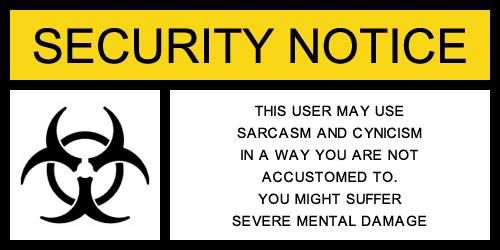Post by Queen of the Damned on Jul 19, 2009 19:59:44 GMT -5
ConsumerMan: Vacation tweets can hurt
Burglars also surf the Internet, so a careless update could lead to a crime
By Herb Weisbaum
updated 1:30 p.m. ET, Thurs., July 16, 2009
Here’s a shout out to Spencer in California. Based on your recent tweets, it looks like the family is having an awesome vacation. As I’m writing this column, I see you’re in Colorado, far from home.
Using your name and other information listed on your Twitter page, it took me about 10 seconds to get your home address. Good thing I’m not a burglar, because if I were, I might drop by while you’re all away.
“Most people set up their Twitter accounts so that anybody can follow them,” notes Washington State Attorney General Rob McKenna, who has his own Twitter page. “It’s not really a good idea to broadcast to the public about your extended absences from home and your other activities which might give someone the opportunity to take advantage of you.”
For many, vacation tweets have replaced postcards as a way of telling family and friends, “We’re having a great time, wish you were here.”
But unrestricted tweets are not postcards. They’re more like national television commercials that announce, “We’re away from home right now, so it’s a good time to burglarize the place.”
Maybe I shouldn’t have done that
Charity Glass-Cotta is a lawyer in the Seattle area. Until a few weeks ago, we’d never met.
Searching Twitter to research this column, I noticed a tweet she posted about her vacation plans: “Heading down to Oregon for that long weekend — going off the grid, no Internet! Happy 4th.”
It took less than a minute online to find Charity’s home address and phone number. When I contacted her, she was nice enough to meet with me.
Charity has two Twitter accounts. Her personal account is private, but her business account is not. She wrote the tweet about going on vacation on the business account accessible to anyone.
“I really didn’t think it through,” she admits. “This is a good reminder to really make sure you’re safeguarding your information and protecting it so you don’t hurt yourself.”
Charity says Twitter is so informal it’s easy to picture yourself chatting with a small group of friends. That can result in sharing personal information that is best kept private. But unless your account is private, your tweets aren’t limited to your trusted friends.
Can a careless Tweet really lead to a crime?
As far as I can tell, there are no documented cases of a vacation tweet being linked to a break-in. But burglars don’t leave a note saying why they chose your house.
Israel Hyman of Mesa, Ariz., isn’t sure if his vacation tweets tipped off the burglars who broke into his house. He did let everyone know he and his wife were “preparing to head out of town.” Another tweet announced that they had “made it to Kansas City.”
The Mesa police department hasn’t made any arrests in this case, so detectives can’t say why Hyman’s house was targeted. Even so, they want people to realize the risk in posting vacation tweets.
“You’d never let your house look like it’s vacant,” says Sgt. Ed Wessing, an information officer with the Mesa police department. “Why tell the world you’re not going to be there?”
No one’s knocking Twitter
“Twitter is a great tool,” says Internet security expert Linda Criddle, who runs the Web site iLOOKBOTHWAYS.com. But she worries about people who “seriously over-share” on Twitter and other social networking sites and do it in real time.
“It’s just remarkable how much information they vomit out,” Criddle says. “They’re excited and make assumptions that everyone who is reading what they post is good and kind.”
A lot of people use their real names on their Twitter page. Some post city and state. Many link to their Facebook or MySpace page. Armed with this wealth of information it’s pretty easy to use online search engines and databases to find their home address.
“It’s very easy to find people, even with unlisted phone numbers,” warns McKenna. “And you should not assume that just because you use some kind of alias on your Twitter account that someone won’t be able to figure out who you are and where you live.”
I was curious to know what the folks at Twitter had to say about all this. When I called, no one answered the media phone line and the voice mailbox was full. I e-mailed the company, but did not hear back.
The bottom line
Call me old-fashioned, but when my wife and I go out of town we don’t want everyone to know we’re away. We tell a few co-workers, the neighbors (who watch the house for us) and our family members. That’s it.
I doubt you would put a message on your home answering machine that says, “Hi, we’re on vacation and won’t be home for the next two weeks.” Why would you tweet that same information?
Making your account private takes care of much of the problem. But even if you only tweet to family and friends, they might re-tweet that information to others.
"What are you doing?" Twitter asks. The question seems harmless enough. The answer might not always be. Is your tweet too personal? Is it something that could hurt you or your family in some way? Please, think before you tweet!
© 2009 msnbc.com. Reprints
URL: www.msnbc.msn.com/id/31921967/ns/business-consumer_news/




